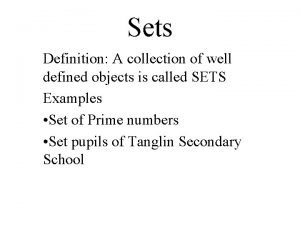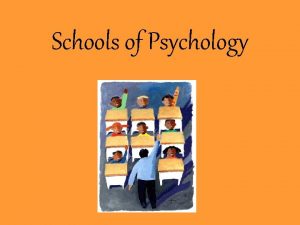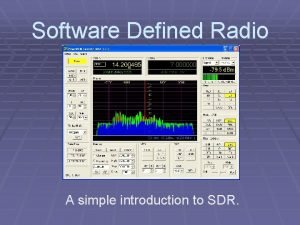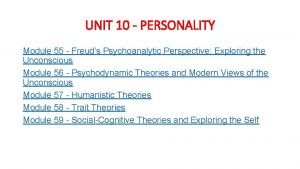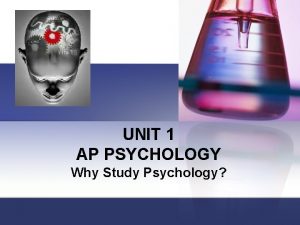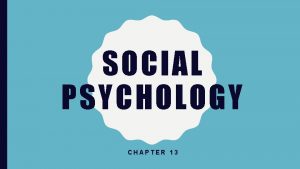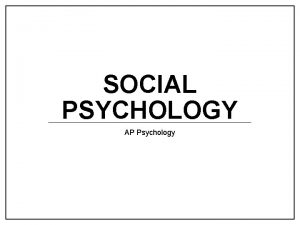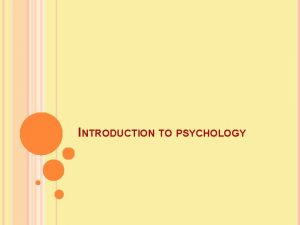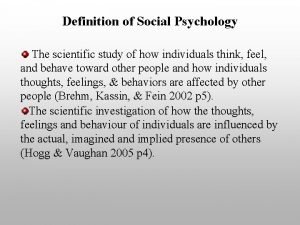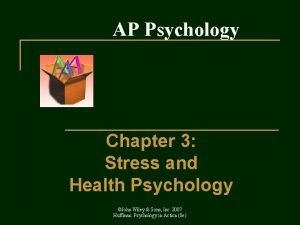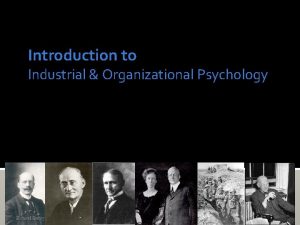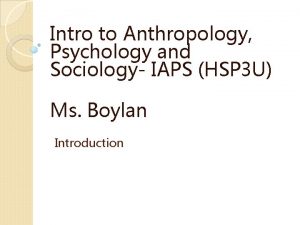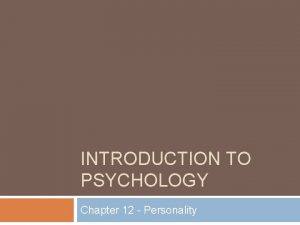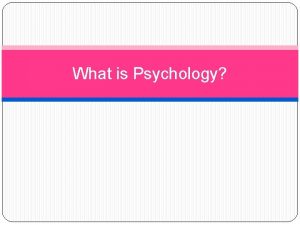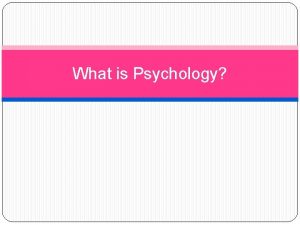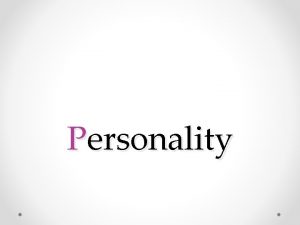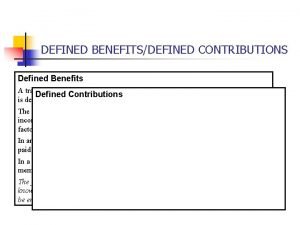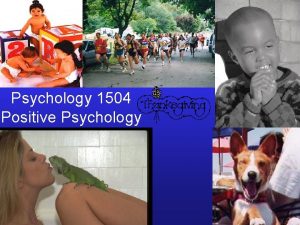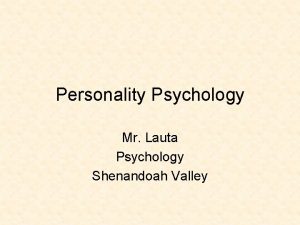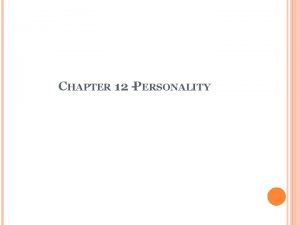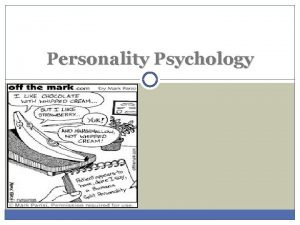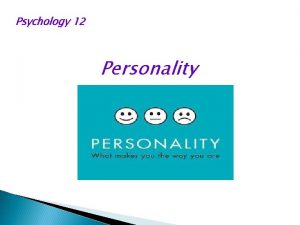Personality Psychology Introduction to Personality Personality Defined Personality











- Slides: 11

Personality Psychology Introduction to Personality

Personality Defined Personality is the set of l psychological traits and mechanisms l within the individual l that is organized and relatively enduring and l that influences his or her interactions with, and adaptations to, the environment.

Personality Defined Personality is a l dynamic organization, l inside the person, l of psychophysical systems that create l the person's characteristic patterns of behavior, thoughts and feelings

Personality Defined This definition makes several points: Personality l has organization l is active, it has processes of some sort l is a psychological concept, but is tied to the physical body l is a causal force…it helps determine how the person relates to the world l shows up in patterns…it has consistency l is displayed in many ways (Carver, Scheier, Allport)

What is a Theory? Theory Defined l l A theory is a model of reality that helps us to understand, explain, predict, and control that reality. A theory is a set of related assumptions that allows scientists to use logical deductive reasoning to formulate testable hypotheses.

A Good Theory A useful theory must l Generate Research - both descriptive research and hypothesis testing, l Be Falsifiable; that is, research findings should be able to either support or refute theory, l Organize Data into an intelligible framework and integrate new information into its structure; l Guide Action, or provide the practitioner with a road map for making day-to-day decisions; l Be Internally Consistent and have a set of operational definitions; and l Be Parsimonious, or as simple as possible.

Why Different Theories? l l Psychologists and other scientists generate a variety of theories because they have different life experiences and different ways of looking at the same data. Different theories may useful in different situations.

Major Questions a Personality Theory Attempts to Answer l l Developmental-Historical Question l How did the person come to behave as he or she does now? What were the causes or the beginnings of the person? Predictions-Consistency Question l Will this person behave similarly in similar situations at a later time? Uniqueness-Generality Question l When are we unique and when are we the same? Content/Process l "Personality is something that does something" Allport.

Pitfall of Theories l l l Ethnocentrism Egocentrism Dogmatism Misunderstandings Evidence (Lack of)

Basic Assumptions Concerning Human Nature l l l Heredity … Environment (? ) Free Will … Determinism (? ) Optimistic (Changeability) … Pessimistic (Unchangeability) (? ) Uniqueness …Universality Physiological … Purposive Motivation l (Homeostasis … Heterostasis) Unconsciousness … Conscious Proactivity (Personal) … Reactivity (Situation) Stage (Discontinuous) … Non Stage Theory (Continuous) Early … Late Experience Holism … Elementalism (Reductionism) Cultural Determinism … Cultural Transcendence

Summary § Theories serve as a guide for researchers § Theories organize known findings § Theories allow us to make predictions § Theories are more than just beliefs § Theory and research are bound together
 What is the collection of well-defined objects
What is the collection of well-defined objects Wundt structuralism definition
Wundt structuralism definition Introduction to software defined radio
Introduction to software defined radio How is personality defined module 55
How is personality defined module 55 Positive psychology ap psychology definition
Positive psychology ap psychology definition Social psychology examples
Social psychology examples Social psychology ap psychology
Social psychology ap psychology Introspection method
Introspection method Social psychology is the scientific study of:
Social psychology is the scientific study of: Health psychology definition ap psychology
Health psychology definition ap psychology Introduction to organizational psychology
Introduction to organizational psychology Introduction to anthropology psychology and sociology
Introduction to anthropology psychology and sociology
